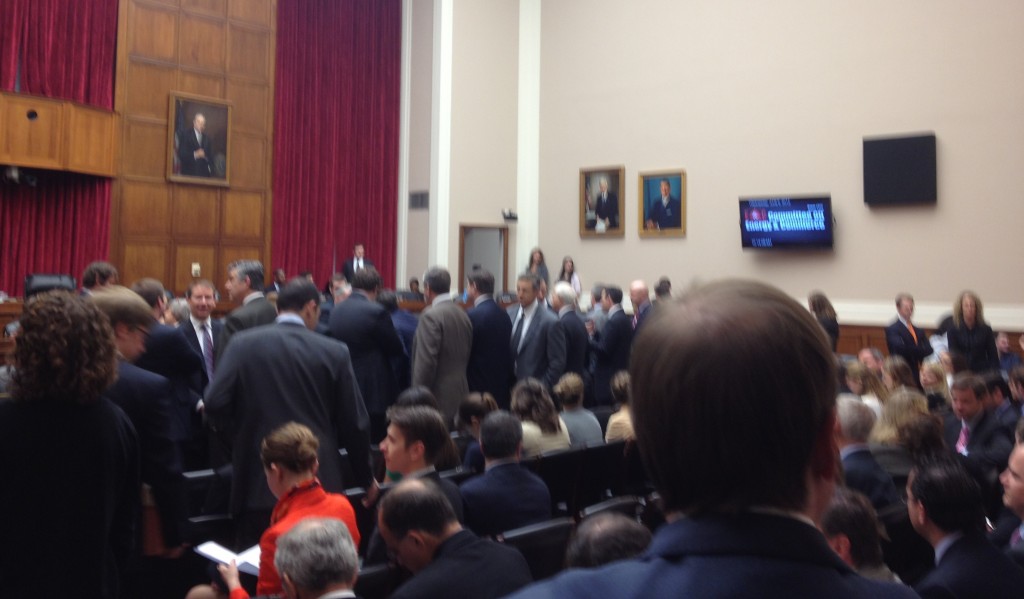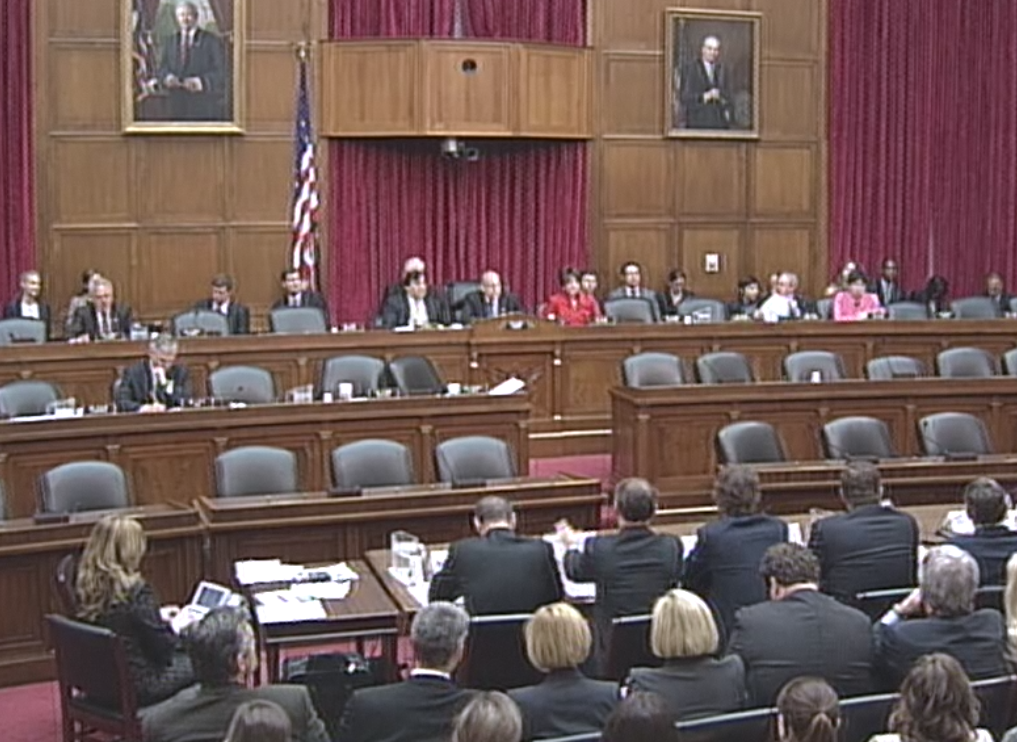Future of Audio Hearing: The FM Chip Mandate Debate
Does your 21st century smartphone need a 20th century radio antenna?
A crowded room listened as broadcasters, music rightsholders, and device makers aired numerous issues on the “future of audio” in the House Energy and Commerce Committee today, including the recurring controversy over an FM chip technology mandate.
Several years ago, broadcasters began urging Congress to require by law that new smartphones contain obligatory FM radio receivers. After having been roundly criticized during previous Congresses for promoting a tech mandate, broadcasters now have retreated to seeking “a discussion” and a study about FM receivers. Specifically, on why they should be in every smartphone.
The tech mandate criticism is not unfounded. The recent history of technology mandates in the home entertainment space has been rocky. Congress mandated design features in digital audio tape (DAT) devices in 1992, which proved to be a failure. In 2005, the FCC attempted to mandate that digital broadcast television contain a particular copy protection, before that proposal was struck down by the D.C. Circuit in American Library Ass’n v. FCC.
Why mandate FM chips? Justifications have varied over time. Initially, broadcasters pointed to disaster preparedness: mandating FM chips would allow people to receive emergency alerts via their phone. At today’s hearing, broadcasters touted FM radio as being more consumer-friendly, since radio play wouldn’t count against monthly data caps. Yet in the United States, consumers have shown little interest in FM receivers in their phones, and are obtaining music via Internet streaming and download services.
The debate over the FM chip tech mandate isn’t about what consumers want. It is a classic response to disruptive competition. Broadcasters are losing market share to Internet-based music platforms. Consumers have numerous alternatives to terrestrial broadcast radio today for accessing music. Cary Sherman, testifying for the RIAA, told the committee: “We used to hear that we need a new business model… well, we’ve got that,” and listed services like iTunes, Amazon, Rhapsody and Spotify. (Note that “we” is a defined term here, meaning ‘not us.’ These innovative online services were not developed by record labels; they largely built in spite of them.)
The fact remains, however, that the services that Sherman listed are eating the broadcasters’ lunch, and broadcasters have responded as incumbent industries often do. As the Consumer Electronics Association’s Gary Shapiro noted during the hearing, “innovation often threatens incumbents, and they come to Washington to protect their business models.” Terrestrial radio broadcasters want FM chips on smartphones because it would allow them to compete head-to-head against the Internet radio and music download platforms who currently dominate smartphones. A mandate also may help support advertising rates on traditional broadcast.
Interestingly, the music industry may be benefitting from the lack of FM chips on mobiles because broadcasters do not pay performance royalties for music play (a unique exception arising from the political power of legacy terrestrial radio). As more users switch from broadcast radio to Internet radio on their phone, performance royalties should increase, all else equal. This would be good for musicians, but bad for broadcaster market share. Hence the proposed mandate.










